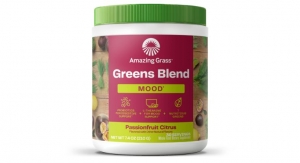By Mike Montemarano, Associate Editor 06.30.20
The field of probiotic science, spanning the trillions of bacteria that live within a person’s gut, is vast, and still in its fledgling stages. It can only be expected that the burgeoning probiotics industry may fall under the scrutiny or at times butt heads with those in the field of nutrition with more reserved outlooks on the preliminary research that continues to occur.
Trade associations relevant to the field, including the Council for Responsbile Nutrition (CRN) and the International Probiotics Association (IPA), recently responded critically to a news segment on CBS's '60 Minutes' called "Do Probiotics Actually Do Anything?" Mainly, the organizations feel the report did not adequately characterize the safety measures by which probiotics providers must operate under, and they do not believe that the segment provided a thorough enough characterization of the body of research surrounding supplements containing "good" bacteria.
Summarily, they believe that a number of novel studies which provide evidence that certain probiotic strains of bacteria may benefit digestive health, immune function, brain health, and bone health, but believe that the program too heavily emphasizes previously published, and limited, scientific studies, without taking into account less dated clinical research.
“The vigorous body of scientific research exploring the benefits of probiotics is providing increased understanding of the role probiotics play, not only for digestive health, but for immune function, brain health, and even bone health,” Andrea Wong, PhD, senior vice president of CRN’s scientific & regulatory affairs, said. “Probiotic use is supported by a long history of safe use and rigorous clinical trials, and CRN underscores these beneficial effects and the safety of these products. But unfortunately, the recent news segment highlights the developing nature of the science and the lack of scientific certainty with regard to their beneficial health effects, pitting one scientist’s view against another’s and leaving viewers confused about the category.”
CRN also believes that the ’60 Minutes’ report downplayed the safety and quality standards by which probiotic supplements are subject to under the purview of the FDA.
“The safety of probiotics is well-established through their long history of use and safety studies,” The organization said in a statement. “Moreover, probiotics marketed as dietary supplements are subject to comprehensive dietary supplement regulations that include current Good Manufacturing Practices (cGMPs), testing procedures, labeling and storage requirements, and other practices enforced by regulatory agencies at both the federal and state levels. Many of the clinical endpoints questioned in the news segment involve treatment of serious diseases and medical conditions that are far beyond the purview of dietary supplements without refuting their beneficial effects for maintaining a healthy gut.”
“This segment and its featured research reinforces that probiotics work through a variety of mechanisms beyond changing the composition of the microbiome and we encourage more research into the benefits and safety of this category,” CRN continued.
IPA echoed this sentiment, explaining that it is their view that probiotics are regulated through premarket oversight to the same extent as any other commerical product depending on the intended use or category, including foods, medical foods, dietary supplements, or drugs.
The ’60 Minutes’ segment, titled “Do Probiotics Actually Do Anything?” CBS featured accounts from a number of nutritional researchers experienced in the field of probiotics. One featured conflict of opinions included that between Dr. Patricia Hibberd, and Dr. Dan Merenstein, whose viewpoints differed on the efficacy of probiotics specifically as treatments to a number of medical conditions, including diarrhea caused by the use of antibiotics, irritable bowel syndrome, and more.
During one interview, Hibberd told reporters that there are no available probiotics that evidentially may benefit those experiencing antibiotic-induced diarrhea, irritable bowel syndrome, or allergies. However, the International Probiotics Association (IPA) took issue wtih this in their response to the program.
"The IPA would like to remind the reader that independent clinical organizations, such as the WGO [World Gastroenterology Organization] and the AGA [American Gastroenterological Organization] recommend specific probiotics. For IBS, the WGO also recommends certain probiotics."
The IPA further cited a meta-analysis "Probiotics for Prevention of Atopy and Food Hypersensitivity in Early Childhood," which found that certain probiotics could reduce food allergy symptoms by 22%
The segment also called attention to a trial conducted at Israel’s Weizmann Institute of Science, which revealed evidence suggesting that in a trial evaluating one specific cocktail of probiotic strains, the supplement appeared to be no more effective than a placebo.
IPA argued that specific design parameters in clinical trials are in place to determine the extent to which a placebo effect may or may not occur, and that this phenomenon is commonplace both in and out of probiotics research. Further, the organization said that the study of one product, which did not have any clinical endpoints in its design, was not a holistic characterization of the line of probiotic products as a whole.
"The results from one undocumented product in an exploratory study from the Weizmann Institute are presented in the segment," IPA continued in a statement. "While the study is technologically advanced, it included only a small number of subjects, and was not investigating any clinical endpoints. Just because the intervention did not recover the microbiota under the study conditions, does not mean that probiotics as a whole are ineffective. While the researchers were ‘surprised’ that the probiotics did not ‘settle’ (sic) , it is important to understand that the scientific community widely acknowledges that probiotics do not colonize. Finally the conclusion, in recommending caution with prescribing probiotics, is based on controversial results with a commercial product that is hardly documented as a probiotic.
Additionally, Dr. Frank Greer, speaking on behalf of the Infant Nutrition Council of America, an infant formula trade group, appeared on the segment to opine that he does not advocate for the now highly-popular use of probiotics in infant formulas. He believes that there may be unintended health consequences that may play out in the long term which have not yet been fully addressed in clinical settings.
In response to Dr. Greer's statement on '60 Minutes,' IPA pointed to a review conducted by the European Society for Paediatric Gastroenterology, Hepatology, and Nutrition, called "Supplementation of Infant Formula with Probiotics and/or Prebiotics" which concluded that there was no evidence for safety concerns in probiotics consumption among infant nad child populations.
"The consumer will need more balanced sources of information to be able to make an informed choice," IPA said. "The IPA is commmitted to provide fair and objective information on probiotics to the benefit of the consumer and the probiotics industry, globally."
Trade associations relevant to the field, including the Council for Responsbile Nutrition (CRN) and the International Probiotics Association (IPA), recently responded critically to a news segment on CBS's '60 Minutes' called "Do Probiotics Actually Do Anything?" Mainly, the organizations feel the report did not adequately characterize the safety measures by which probiotics providers must operate under, and they do not believe that the segment provided a thorough enough characterization of the body of research surrounding supplements containing "good" bacteria.
Summarily, they believe that a number of novel studies which provide evidence that certain probiotic strains of bacteria may benefit digestive health, immune function, brain health, and bone health, but believe that the program too heavily emphasizes previously published, and limited, scientific studies, without taking into account less dated clinical research.
“The vigorous body of scientific research exploring the benefits of probiotics is providing increased understanding of the role probiotics play, not only for digestive health, but for immune function, brain health, and even bone health,” Andrea Wong, PhD, senior vice president of CRN’s scientific & regulatory affairs, said. “Probiotic use is supported by a long history of safe use and rigorous clinical trials, and CRN underscores these beneficial effects and the safety of these products. But unfortunately, the recent news segment highlights the developing nature of the science and the lack of scientific certainty with regard to their beneficial health effects, pitting one scientist’s view against another’s and leaving viewers confused about the category.”
CRN also believes that the ’60 Minutes’ report downplayed the safety and quality standards by which probiotic supplements are subject to under the purview of the FDA.
“The safety of probiotics is well-established through their long history of use and safety studies,” The organization said in a statement. “Moreover, probiotics marketed as dietary supplements are subject to comprehensive dietary supplement regulations that include current Good Manufacturing Practices (cGMPs), testing procedures, labeling and storage requirements, and other practices enforced by regulatory agencies at both the federal and state levels. Many of the clinical endpoints questioned in the news segment involve treatment of serious diseases and medical conditions that are far beyond the purview of dietary supplements without refuting their beneficial effects for maintaining a healthy gut.”
“This segment and its featured research reinforces that probiotics work through a variety of mechanisms beyond changing the composition of the microbiome and we encourage more research into the benefits and safety of this category,” CRN continued.
IPA echoed this sentiment, explaining that it is their view that probiotics are regulated through premarket oversight to the same extent as any other commerical product depending on the intended use or category, including foods, medical foods, dietary supplements, or drugs.
The ’60 Minutes’ segment, titled “Do Probiotics Actually Do Anything?” CBS featured accounts from a number of nutritional researchers experienced in the field of probiotics. One featured conflict of opinions included that between Dr. Patricia Hibberd, and Dr. Dan Merenstein, whose viewpoints differed on the efficacy of probiotics specifically as treatments to a number of medical conditions, including diarrhea caused by the use of antibiotics, irritable bowel syndrome, and more.
During one interview, Hibberd told reporters that there are no available probiotics that evidentially may benefit those experiencing antibiotic-induced diarrhea, irritable bowel syndrome, or allergies. However, the International Probiotics Association (IPA) took issue wtih this in their response to the program.
"The IPA would like to remind the reader that independent clinical organizations, such as the WGO [World Gastroenterology Organization] and the AGA [American Gastroenterological Organization] recommend specific probiotics. For IBS, the WGO also recommends certain probiotics."
The IPA further cited a meta-analysis "Probiotics for Prevention of Atopy and Food Hypersensitivity in Early Childhood," which found that certain probiotics could reduce food allergy symptoms by 22%
The segment also called attention to a trial conducted at Israel’s Weizmann Institute of Science, which revealed evidence suggesting that in a trial evaluating one specific cocktail of probiotic strains, the supplement appeared to be no more effective than a placebo.
IPA argued that specific design parameters in clinical trials are in place to determine the extent to which a placebo effect may or may not occur, and that this phenomenon is commonplace both in and out of probiotics research. Further, the organization said that the study of one product, which did not have any clinical endpoints in its design, was not a holistic characterization of the line of probiotic products as a whole.
"The results from one undocumented product in an exploratory study from the Weizmann Institute are presented in the segment," IPA continued in a statement. "While the study is technologically advanced, it included only a small number of subjects, and was not investigating any clinical endpoints. Just because the intervention did not recover the microbiota under the study conditions, does not mean that probiotics as a whole are ineffective. While the researchers were ‘surprised’ that the probiotics did not ‘settle’ (sic) , it is important to understand that the scientific community widely acknowledges that probiotics do not colonize. Finally the conclusion, in recommending caution with prescribing probiotics, is based on controversial results with a commercial product that is hardly documented as a probiotic.
Additionally, Dr. Frank Greer, speaking on behalf of the Infant Nutrition Council of America, an infant formula trade group, appeared on the segment to opine that he does not advocate for the now highly-popular use of probiotics in infant formulas. He believes that there may be unintended health consequences that may play out in the long term which have not yet been fully addressed in clinical settings.
In response to Dr. Greer's statement on '60 Minutes,' IPA pointed to a review conducted by the European Society for Paediatric Gastroenterology, Hepatology, and Nutrition, called "Supplementation of Infant Formula with Probiotics and/or Prebiotics" which concluded that there was no evidence for safety concerns in probiotics consumption among infant nad child populations.
"The consumer will need more balanced sources of information to be able to make an informed choice," IPA said. "The IPA is commmitted to provide fair and objective information on probiotics to the benefit of the consumer and the probiotics industry, globally."




























